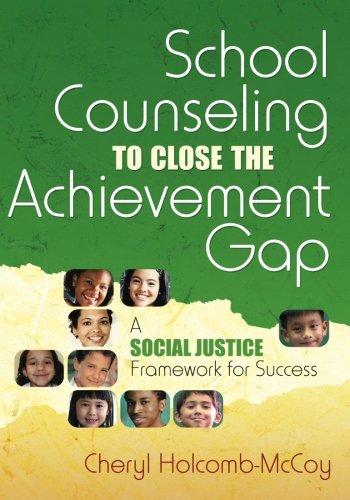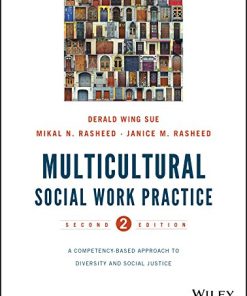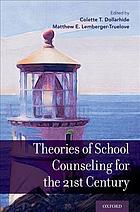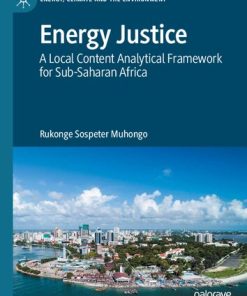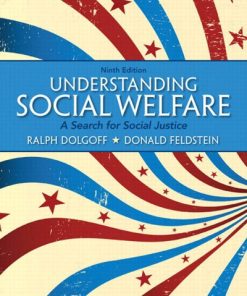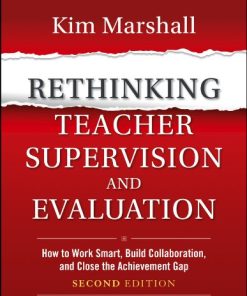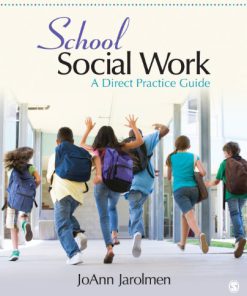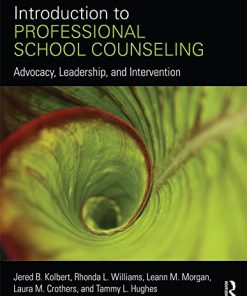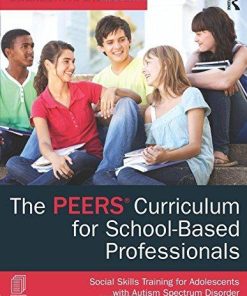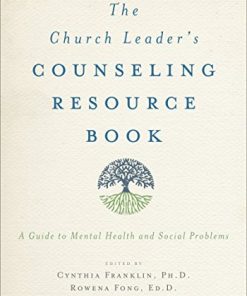School Counseling to Close the Achievement Gap: A Social Justice Framework
$50.00 Original price was: $50.00.$25.00Current price is: $25.00.
School Counseling to Close the Achievement Gap: A Social Justice Framework – Digital Instant Dowload.
School Counseling to Close the Achievement Gap: A Social Justice Framework – Digital Instant Dowload.
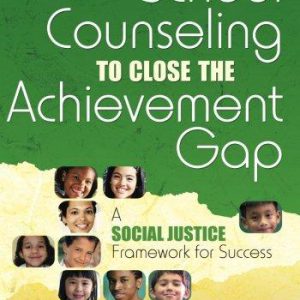
Product details:
- ISBN-10 : 1412941849
- ISBN-13 : 978-1412941846
- Author: Cheryl Holcomb-McCoy
Be a major player in improving student development and performance!
Rooted in the principles of social justice, this much-needed resource offers school counselors a road map for promoting equity and increasing student achievement. The author shows counselors how they can improve both the delivery and impact of their counseling, consulting, and coordination services by incorporating data and advocacy into their everyday work. To assist them in challenging bias and creating conditions that promote success for all students, this book offers readers:
- Counseling snapshots of challenging situations
- Small-group activities for students
- Suggested readings for extending learning
- Individual and group reflective questions to deepen understanding
Table of contents:
1. The Achievement Gap: Our Ultimate Challenge
School Counseling and the Gap
Where We Have Been and Where We Are Headed
The Power of School Counselors
Achievement Gap Defined
A Closer Look at the Gap
What Do We Know About Closing the Gap?
Questions to Consider
2. School Counseling Within the Context of Social Justice
Redefining School Counseling to Serve Diverse Groups
Focusing on Social Justice
Key Functions of School Counseling Based on a Social Justice Approach
Questions to Consider
3. Counseling and Intervention Planning
Critical Factors That Affect School Counseling and the Counseling Relationship
Culturally Appropriate Counseling Interventions
Assessing School Counselors′ Multicultural Counseling Competence
The Influence of Culture on Intervention Planning
Questions to Consider
4. Consultation
Defining Consultation
Social Justice Considerations and the Consultation Process
Consultation Strategies
Questioning Domains
Assessing School Culture
Questions to Consider
5. Connecting Schools, Families, and Communities
Avoid the Blame Game
Five Principles of Effective SFC Partnership
Barriers to School-Family Collaborations
Questions to Consider
6. Collecting and Using Data
What Is Accountability?
Using Data to Uncover Inequities
School Counseling Program Evaluation
Developing Program Assessment Tools
Questions to Consider
7. Challenging Bias
Guidelines for Challenging Bias
Social Justice Education in Schools
Questions to Consider
8. Coordinating Student Services and Support
Collaborating With Community Organizations and Social Service Agencies
Implementing Scheduling Practices That Encourage Rigorous Course Taking
Coordinating College Preparation Interventions
Coordinating Tutoring Services
Participating on Individualized Education Program Committees
Participating on Gifted and Talented Committees
Questions to Consider
9. Doing the Right Thing: Developing a Social Justice–Focused School Counseling Program
Assessing Your Beliefs
Assessing Your Skills
Assessing Your Students′ Needs
My Vision for My School Counseling Program
Concluding Remarks
Resources
Resource A: Assessing School Equity
Resource B: School Counselor Multicultural Competence Checklist
Resource C: School Culture Assessment
Resource D: Assessing Beliefs About School-Family-Community Partnership Involvement
Resource E: SOARING Samples and Worksheets
Suggested Readings by Topic
References
Index
Title tag
Bridging Educational Inequality: School Counseling for Achievement Gap Closure
Advocating Equity: The Role of School Counseling in a Social Justice Framework
Fostering Fairness in Education: Strategies for School Counselors to Narrow the Achievement Gap
You may also like…
Uncategorized
Education Studies & Teaching - Education - General & Miscellaneous
Jurisprudence & Law - Environmental Law
Energy Justice: A Local Content Analytical Framework for Sub-Saharan Africa Rukonge Sospeter Muhongo
Uncategorized
Uncategorized


